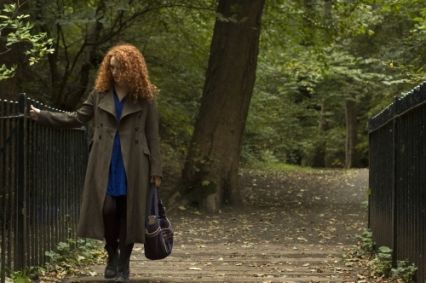Showing @ Filmhouse, Edinburgh, Thu 19 Apr only
Love, loss, redemption and rebirth are the four main themes that lie at the heart of Tim Barrow’s The Space Between, an independent film based in London and Edinburgh. Returning to the Filmhouse after its 2011 première, the film attempts to bring a number of difficult and seldom discussed issues to the audience, but loses focus in a script besieged by cliché, stereotype and shots of the Scottish capital.
Following the death of his unborn baby daughter, Steven (Barrow) returns to his home city of Edinburgh, intent on trying to find something to live for. But when he meets Lisa (Vivien Reid) who is also mourning the death of a daughter, their shared pasts take them on a journey through Edinburgh, and towards their future, guided by the mysterious Man (David Whitney).
While rich in a number of emotionally charged themes and brimming with feeling, The Space Between is a slow and plodding exploration of grief, self-destruction and loss that never quite reaches the heights that it endeavours to soar to. While the message of the film is clear from the very beginning, Barrow wants the audience to know that there is quite literally life after death, but not in the way that we expect. And there is a really valid and important point to be made here, about death, our attitudes towards it, and appropriate ways of grieving.
But Barrow’s love story, while well-intentioned, is much more two dimensional than it should be. It’s this lack of depth, combined with Barrow’s portrayal of self-harm and suicide attempts that come across as a little sensationalist that make The Space Between’s story so uninvolving. While a large part the film’s appeal lies in the fact that it was shot in Edinburgh, it’s the city itself, and the recognisable sites of Arthur’s Seat, Leith Walk and Cockburn Street, to the lesser-known and seldom seen Cramond Island and St Bernard’s Well that dominate the film, and give the city more of an edge over the actors and the story. While this film could be considered more of a love letter to Edinburgh, its story is at times tedious and the plot is lost in emotionally charged scenes of self harm that fail to instil a sense of sympathy with the viewer. While Barrow must be applauded for tackling a very difficult subject, the execution of his film is simply too heavy, too bogged down by innumerable side stories and issues to make the impact that it should.


Comments